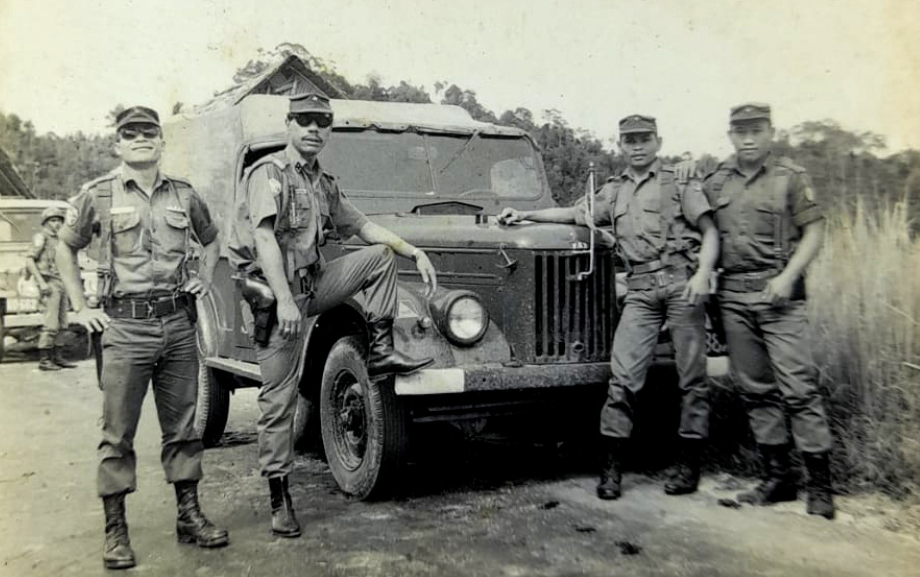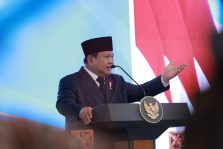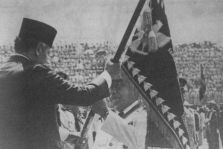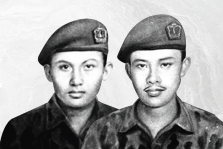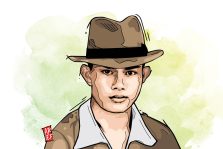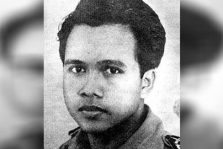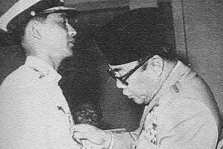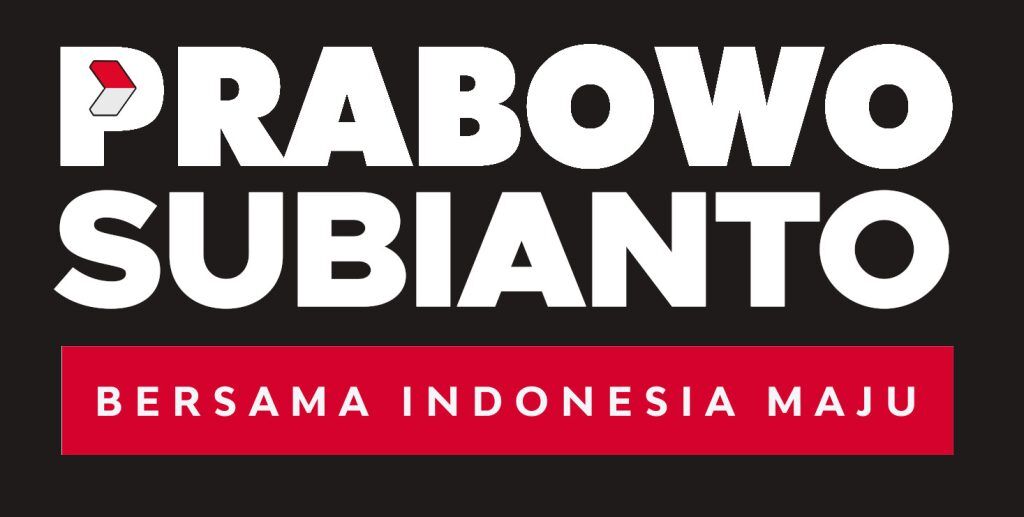By: Prabowo Subianto [taken from the Book: Military Leadership Notes from Experience Chapter I: Exemplary Leaders of The Indonesian Armed Forces]
Pak Djasmin was a leader who led with full tranquillity and a sense of paternalism. He never put pressure on his men. He was full of affection. He never wanted to leave anyone behind. That’s why his lodgings in the mountain were the same as the soldiers’. We would feel bad if we did not do our best for him.
Thus, we can observe different types of leadership. Some people have a tough leadership style. Some leaders are warm and affectionate, like Pak Djasmin. Everyone has their style. But at the end of the day, everyone wants the same thing: to succeed, to accomplish the mission.
He was a Catholic commander. But he respected the Muslims who were celebrating Eid al-Fitr. In the TNI, we are taught to respect each other’s faith. Pak Djasmin’s attitudes have influenced my values and even my career to date. Such tolerance values should be maintained as a soldier.
I first met Pak FX Sudjasmin in 1983 during an operation in East Timor. At that time, Fretilin’s forces violated the ceasefire agreement that was agreed upon by both sides in the conflict. They carried out massive attacks in almost all TNI sectors, especially in the central and eastern sectors.
I was then the Detachment 81 Deputy Commander. Our team was codenamed Chandraca 8, with the call sign Bravo. Bravo’s men were deployed to the central sector. The headquarters were in Ossu, halfway between Baucau and Viqueque. The Sector Commander was Lieutenant Colonel FX Sudjasmin.
Upon arrival, I immediately reported to him, and we met at the headquarters at the ruins of an abandoned convent. It was one of the largest buildings in Ossu. I entered a former Portuguese fort in Ossu. I saw Pak Djasmin, a very sympathetic Javanese man with a moustache. He was always smiling, always joking, even in the middle of operations. He was a chain smoker.
We had good chemistry. He is a calm, fatherly figure. He never put excessive pressure on his men. He was full of affection and very close to his men. That was why he established his command post in the mountain to be amidst his soldiers. Thus, we would feel bad if we did not do our best for him.
Here, we can observe different types of leadership. Some people have a tough leadership style; some are calm and affectionate, like Pak Djasmin. Everyone has their style. But at the end of the day, everyone wants the same thing: to succeed, to accomplish the mission.
At one point, after returning from an operation in East Timor, we heard that we would be deployed again. Back then, Pak Djasmin served as my Division Commander (PANGDIV) in the KOSTRAD 328 Airborne Infantry Battalion (YONIF LINUD). It was often used as a reactionary force. As such, it was often relied upon in an emergency.
As we heard that we would be deployed again, we prepared for the immediate deployment. Incidentally, it was Eid al-Fitr. After Eid prayer and gathering in the hall to eat tumpeng and ketupat (cone-shaped rice dish), at 11:00, we went straight to the field and started our marksmanship training.
After we practised shooting, Division Commander Pak Djasmin in Cilodong heard the gunfire, and he summoned me. He questioned why there were gunshots during Eid al-Fitr. I replied that we were practising shooting. He reprimanded me. He asked for the training to be stopped. All the men had to be given a holiday. He said that it was more important to celebrate Eid al-Fitr.
I insisted that the soldiers should continue the training. I argued that the religious obligations had been fulfilled, such as Eid prayer and ritual gatherings. I did not want to lose the precious time we had left for training. But he strongly ordered that the training be stopped. So, we did. We stopped the training.
This is worth noting. He was a Catholic. But he respected Muslims who were celebrating Eid al-Fitr. In the TNI, we are taught to respect each other’s faith. Pak Djasmin’s attitudes have influenced my values and even my career to date. Such religious tolerance must be maintained in the TNI, and by extension, throughout the whole nation.
I felt so close to him that he always called me ‘Mas Bravo’. He rarely called me General Bowo or Mas Bowo. He always stood by me if my seniors spoke ill of me. At that time, some of my seniors talked badly about me. They said I achieved my rank not because of merit but because I was the president’s son-in-law. Some had portrayed all my actions and policies in a negative light. Pak Djasmin always defended me. He defended me because he had witnessed and was fully aware of my performance in the field and the quality of my leadership.
For me, Pak Djasmin was a commander figure who set an excellent example. I also have another experience that we could draw a lesson from. It took place when he was the Army Deputy Chief of Staff (WAKASAD).
At that time, I was serving as KOPASSUS Deputy Commander (WADANJEN). I had an officer from Papua named Nico Obaja Woru, class of ‘78. Back then, he had failed the Army Staff and Command School (SESKOAD) test several times due to various reasons. I then went to Pak Djasmin and asked if Nico could be allowed to pass the test because he was a good soldier. Moreover, there had yet to be an officer from Papua who had passed the SESKOAD test before. For me, Nico needed to pass because he deserved it, and he was capable of it. Besides, he was a native Papuan, and the people of Papua would be proud of him if he finally managed to pass.
Pak Djasmin immediately checked why Nico did not pass. It turned out that he had symptoms of liver ailment. Nevertheless, I still asked Pak Djasmin if he could let him pass, as it was, in my opinion, a mild affliction.
He was finally willing to help him pass the test on one condition: I must be responsible if the officer really suffered from liver ailment later. So, the Papuan officer passed the test with the help of Pak Djasmin. Eventually, history proved that he was indeed capable and deserving. In the end, Nico retired as a Brigadier General. It is an example of how he empathised with service members in the field at times, even overruling the opinion of various authorities.

